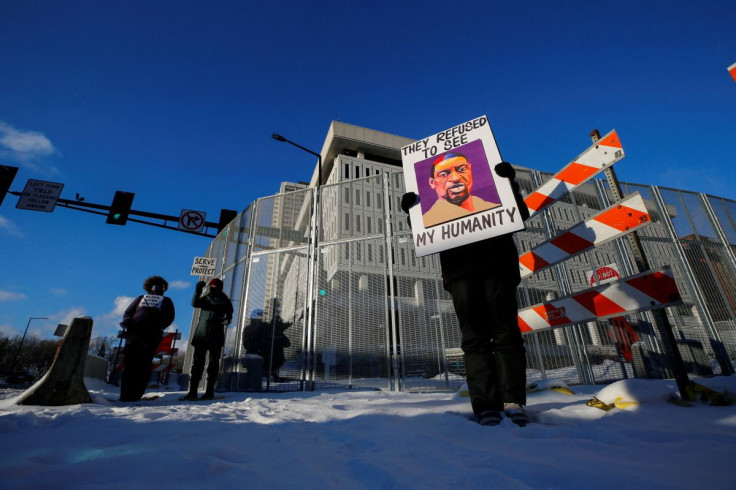Pattern Of 'Racial Discrimination' Found In Minneapolis Policing, Study Says

An inquiry prompted by the 2020 murder of George Floyd by a white police officer found a pattern of unlawful, "discriminatory policing" in Minneapolis and little accountability for offenders, a state report released on Wednesday said.
The investigation by Minnesota's Department of Human Rights concluded that city officials had allowed the city's police to persist in practices that violate the state's Human Rights Act, which prohibits discrimination in public services.
While Black residents comprise about 19% of the city's population, they accounted for 63% of all incidents in which police had used force between 2010 and 2020, the report said.
The discriminatory behavior festered within an organizational culture where officers are inadequately trained, leading them to unnecessarily escalate encounters with the public, the investigation concluded. Offending officers generally face no consequences, it said.
"Without fundamental organizational culture changes, reforming MPD's policies, procedures and trainings will be meaningless," the report said.
The Minnesota Department of Human Rights (MDHR) conducted the investigation of the city and its police department by reviewing bodycam footage and policing data, and interviewing law enforcement and community members. The department received assistance from 21CP Solutions, an organization of policing experts.
"As part of this process, MDHR will meet with community members, MPD officers, City staff, and other stakeholders to gather feedback on what should be included in a consent decree to address racial discrimination in policing in Minneapolis," the report said.
The Minneapolis Police Department and Mayor Jacob Frey's office did not immediately return a request for comment.
The findings were made public days after lawyers of the now-former police officer, Derek Chauvin, filed an appeal of his 2021 conviction on charges of murdering Floyd. The 46-year-old Black man died as Chauvin pinned his neck to the ground with his knee for more than eight minutes, and a video of the fatal encounter sparked worldwide protests against police misconduct and racism.
Lawyers for Chauvin, who is also appealing his 22-1/2 year sentence in the case, contend the trial judge abused his discretion and made multiple errors during the trial.
Ben Crump, a prominent civil rights attorney who represented Floyd's family in a $27 million settlement with the city, welcomed the report's findings and its call for reforms.
"We call on city, state and police leaders to accept the challenge of these findings and make meaningful change at last to create trust between communities of color in Minneapolis and those who are sworn to protect and serve them," Crump said in a statement.
After Floyd's death, Minneapolis banned police from using neck restraints while making arrests. Police officers there are almost two times more likely to use neck restraints on Black people than on white people, the report found.
© Copyright Thomson Reuters 2024. All rights reserved.





















